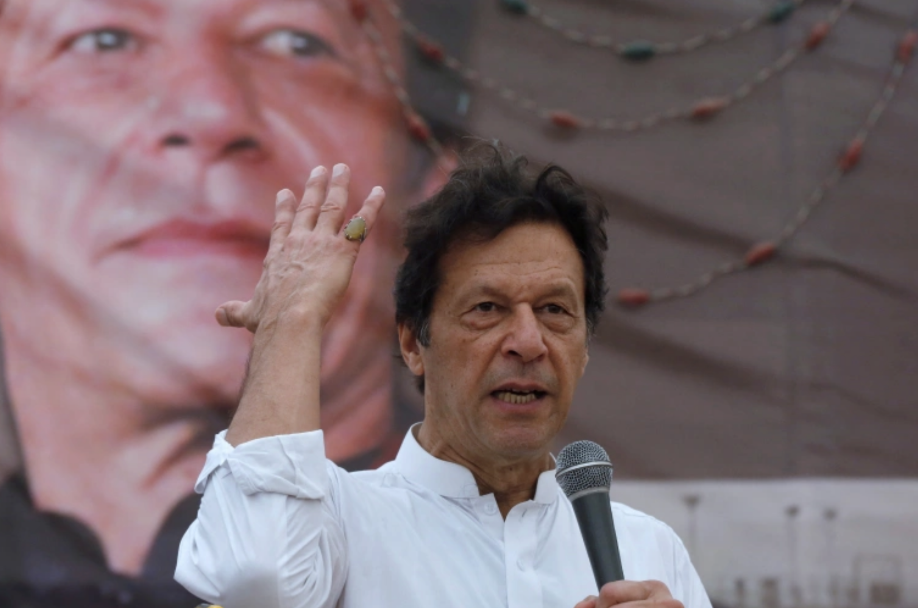Former Pak PM Imran Khan Disqualified from Public Office till 2027
Pakistan Election Commission alleges that former Prime Minister Imran Khan misappropriated gifts received by his office Photo: Akhtar Soomro/Reuters
Pakistan's former Prime Minister and opposition leader Imran Khan has been banned from holding political office for the next five years by the country's election commission.
On October 21, the Pakistan Election Commission announced its decision, slapping corruption charges on the former Prime Minister. It stated that Khan had failed to declare neither the gifts he received during his time in public office nor the income he generated from selling them. According to Pakistani law, gifts received in public office can be taken by the beneficiary if they are evaluated to be under a certain amount. If the gift exceeds the pegged value, the beneficiary has the option of purchasing it for 50% of its estimated worth.
An investigation by Geo News, a Pakistani news channel, revealed that Khan received over 36 million Pakistani rupees from gifted watches that he sold. The report adds that transgressing the set procedure, Khan sold the gifts before putting them in the treasury, raising suspicion about how the monetary value of the presents was appraised.
While instances of corruption were brought to the election commission's notice by Khan's political opponents when he was in power, the chorus around his misconduct has been growing louder after he was removed from the Prime Minister post. In April 2022, following his defeat in a no-confidence motion, Pakistan's National Accountability Bureau decided to examine charges against his close associate Farah Khan. Farah had allegedly gained large sums of unaccountable wealth in the past four years. Ten days after his dismissal, the Islamabad High Court also directed the government to disclose a list of gifts the Prime Minister's office had accepted after Khan came to power.
Khan's supporters believe that the election commission's actions are politically motivated, with Khan implying that the chief election commissioner, Sikander Raja, is a stooge of PM Sharif's government.
Islamabad police use tear gas on PTI supporters demonstrating against the disqualification of PTI party leader Imran Khan Photo: AP
The commission's verdict comes just days after Khan's party, Pakistan Tehreek-e-Insaf (PTI), swept six out of the eight by-polls seats, with Sharif’s party coalition winning just two. The PTI also witnessed a landslide victory in the Punjab elections held in July this year, where they bagged 15 out of the 20 seats in the province.
Many speculated that by riding on this wave of popularity, Imran Khan would be able to pressure the incumbent government to move the general elections scheduled for 2023 forward. The commission's orders thwart Khan’s plans of advancing the polls and have embroiled Khan in a legal battle before the 2023 national elections.
In a show of strength, scores of Khan's supporters descended on Islamabad to protest against the verdict. Meanwhile, Khan's barristers have also filed a petition in the high court, challenging the election commission's order. They argued that all sitting judges had not signed the order, and that disqualifying a sitting member of parliament for submitting a false proclamation was beyond the election body's scope of power.
This political crisis looms amid other challenges facing the Pakistani government, including rehabilitating millions of people who lost their homes and families in the catastrophic floods that hit the country earlier this year and reigning in record high inflation, which threatens to cripple the debt-ridden economy.


